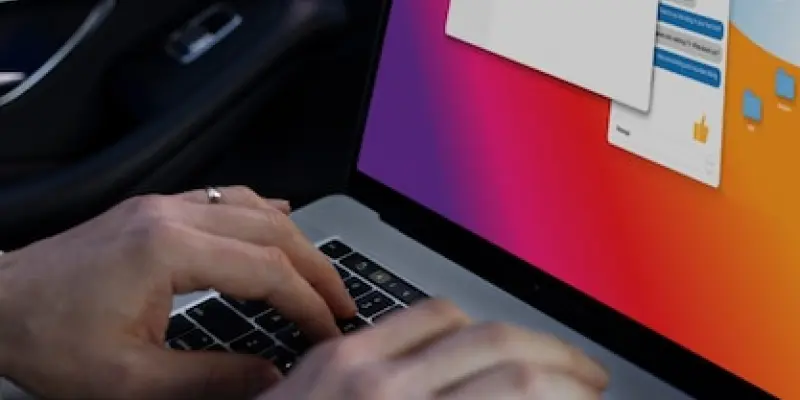With the rapidly evolving landscape of cyber threats, ensuring that one’s operating system is equipped with the latest security measures is paramount. Microsoft has urged users to transition from Windows 10 to Windows 11, especially now that Windows 10 has reached its end-of-support status. The cessation of security updates for Windows 10 necessarily increases the urgency for users to upgrade. Beyond the obvious security benefits, users might also find themselves enticed by potential free upgrade opportunities.
1. Enhanced Security Features
Microsoft has consistently emphasized that one of the primary reasons for upgrading to Windows 11 is the enhanced security framework it offers. Central to this security enhancement is the Trusted Platform Module (TPM), a hardware component designed to ensure the integrity of the system continuously. The TPM chip operates by verifying both software and firmware during the system’s boot process. Should it detect any irregularities or potential malware, the system will be prevented from fully booting, thereby protecting the user’s data and device.
The TPM chip provides several significant security benefits. For one, it encrypts sensitive data, making it challenging for hackers to gain unauthorized access. Additionally, it verifies the integrity of the system’s software and firmware, ensuring that malicious software is blocked from launching during startup. These layers of security are especially crucial in an era where cybercrime is becoming increasingly sophisticated. Furthermore, Windows 11’s reliance on the TPM chip ensures that devices remain secure even if they are lost or stolen. This feature is particularly beneficial for both personal and professional users who handle sensitive information.
Moreover, the TPM chip’s ability to detect physical tampering adds another layer of protection. In the event of a physical attack, the system will not boot, thus safeguarding the user’s data. This comprehensive security approach underscores Microsoft’s commitment to providing users with a robust defense against an array of cyber threats. It also highlights the importance of staying updated with the latest operating systems to benefit from these advanced security features.
2. Free Upgrade Opportunities
For users hesitant about the costs associated with upgrading to Windows 11, there is good news. Microsoft has, at various points, offered free upgrade options to users transitioning from Windows 10 to Windows 11. Ensuring device compatibility is the first step in this process. By navigating to Settings and selecting Windows Update, users can check for the latest updates. If the device meets the hardware requirements, the option to download and install Windows 11 will be made available. This approach simplifies the upgrade process, ensuring that users can transition without financial burden. Additionally, the seamless integration of updates means users can benefit from enhanced security features without significant disruption to their current setup. Microsoft has been diligent in providing detailed guidance and support throughout this transition process. Users are encouraged to take advantage of these free upgrade opportunities promptly, ensuring they benefit from improved security and functionality.
Moreover, staying updated with the latest operating system version means users can access new features and improvements. Windows 11 offers a plethora of enhancements, ranging from user interface improvements to performance optimizations. These upgrades ensure a better user experience overall. By embracing the latest technology, users can ensure their devices remain secure and efficient, ready to handle the demands of the modern digital landscape.
3. Why the Upgrade Matters
Beyond the immediate benefits, the importance of upgrading to Windows 11 cannot be overstated. With Windows 10 no longer receiving security updates, users remaining on this legacy system expose themselves to significant vulnerabilities. The absence of regular patches and updates means that new exploits and malware can target these users with increasing effectiveness. In contrast, Windows 11 is designed to counteract these evolving threats with its advanced security features.
Furthermore, the integration of the TPM chip into Windows 11 represents a significant leap in security technology. Many users might be unfamiliar with this component, but its role is critical in protecting system integrity and user data. This microcontroller ensures that the boot process is secure, preventing unauthorized software from launching. This focus on security ensures that users’ data—and by extension, their privacy—remains protected.
In light of these considerations, the urgency of upgrading becomes clear. Users who act promptly can avail themselves of potentially free upgrades, thus bridging the gap to a more secure future without financial strain. As cyber threats continue to evolve, taking proactive measures becomes indispensable. Ensuring that one’s operating system is up to date and equipped with the latest security measures is a critical step in protecting personal and professional data.
Future Considerations for Users
Considering the fast-paced changes in cyber threat landscapes, it’s crucial to keep your operating system up to date with the latest security features. Microsoft has strongly recommended that users move from Windows 10 to Windows 11, particularly since Windows 10 has reached its end-of-support phase. This means that Windows 10 will no longer receive security updates, making it more vulnerable to potential threats. Therefore, the need to upgrade has become even more critical. The lack of ongoing security patches for Windows 10 increases the urgency for users to make the switch. Beyond security, there are also enticing incentives for users, including potential free upgrade opportunities. Windows 11 not only offers improved security measures but also boasts enhancements in performance, user interface, and features that make it a more robust operating system overall. Users upgrading to Windows 11 can expect a more secure, efficient, and modern computing experience, ensuring they are protected against the latest cyber threats while enjoying the latest technological advancements.

